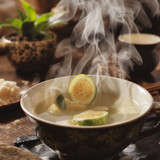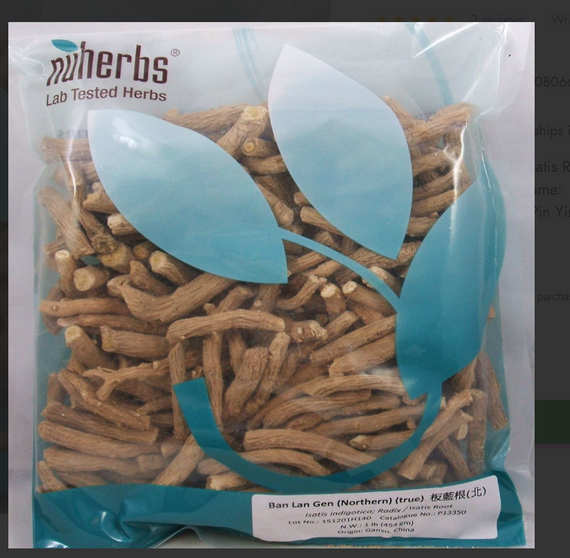Bai Dou Kou (White Cardamom) – Aromatic Herb for Dampness, Qi Regulation, and Digestive Harmony
What Is Bai Dou Kou In Traditional Chinese Medicine.
Bai Dou Kou, also known as White Cardamom, is a highly aromatic herb used in Traditional Chinese Medicine to awaken the Spleen, disperse dampness, and harmonize the digestive system. Its warm and fragrant properties make it especially effective for symptoms like bloating, nausea, vomiting, poor appetite, and a heavy sensation in the body. Bai Dou Kou not only regulates Qi in the middle burner but also helps stop vomiting and transform cold phlegm in the chest and stomach. Ideal for formulas addressing cold-damp digestive stagnation, this herb is a go-to for restoring clarity and digestive flow
Therapeutic Actions and Clinical Benefits
Dispels Dampness and Harmonizes the Middle Jiao
Bai Dou Kou is renowned for its powerful ability to dry dampness and awaken the Spleen. In TCM, internal dampness is often the result of Spleen Qi deficiency and can manifest as:
-
Abdominal bloating and fullness
-
Nausea or vomiting
-
Sticky stools or loose bowel movements
-
Poor appetite and sluggish digestion
-
Sensation of heaviness in the body
By warming the middle burner and promoting Qi flow, Bai Dou Kou revives digestive function and restores balance.
Moves Qi and Relieves Stagnation
Qi stagnation in the Stomach and Spleen can lead to symptoms such as fullness, distension, gas, and pain in the epigastric region. Bai Dou Kou’s acrid and aromatic nature promotes the smooth flow of Qi, helping to:
-
Relieve pressure and bloating
-
Disperse internal obstruction from food stagnation
-
Support postpartum abdominal pain or Qi-related digestive discomfort
It is commonly combined with herbs like Chen Pi (Tangerine Peel) or Sha Ren (Amomum fruit) for a synergistic Qi-moving effect.
Warms the Stomach and Stops Vomiting
Bai Dou Kou is used clinically for cold-type vomiting and nausea caused by cold-damp accumulation. Its warming, aromatic essence is particularly effective in:
-
Vomiting with a white, greasy tongue coat
-
Cold stomach pain with belching or reflux
-
Morning sickness in pregnancy (when used appropriately)
It is frequently found in formulas for harmonizing rebellious stomach Qi, such as Xiang Sha Liu Jun Zi Tang.
Opens the Lungs and Transforms Phlegm
In addition to its digestive benefits, Bai Dou Kou enters the Lung meridian, where it transforms cold-damp phlegm and helps restore Lung Qi flow. This makes it helpful in respiratory conditions marked by:
-
Wet cough with clear or white sputum
-
Chest congestion and fullness
-
Weak digestion contributing to phlegm production
It is often used in conjunction with Ban Xia (Pinellia) or Fu Ling (Poria) in phlegm-resolving formulas.
Pharmacological Insights and Active Compounds
Modern research has identified a variety of volatile oils and phytochemicals in Bai Dou Kou that contribute to its medicinal properties, including:
-
1,8-Cineole: Anti-inflammatory, antispasmodic, and antibacterial
-
Camphor and Terpineol: Aromatic agents that reduce gastric motility and support digestive balance
-
Flavonoids and Polyphenols: Antioxidant and antimicrobial effects
These compounds support its traditional uses in reducing nausea, improving digestion, reducing inflammation, and alleviating microbial infections in the gastrointestinal tract.
Common Combinations and Classical Formulas
| Herb or Formula | Function | Used For |
|---|---|---|
| Bai Dou Kou + Sha Ren | Warm middle, move Qi, harmonize digestion | Cold-damp digestive disorders, bloating, poor appetite |
| Bai Dou Kou + Ban Xia + Chen Pi | Transform phlegm, direct Qi downward | Cold phlegm in chest and stomach, nausea |
| Xiang Sha Liu Jun Zi Tang | Strengthen Spleen, move Qi, harmonize Stomach | Weak digestion with bloating, nausea, and fatigue |
| Ding Xiang Shi Di Tang | Stop hiccup and vomiting, warm middle | Cold-induced vomiting or belching |
 Usage and Preparation Of Bai Dou Kou
Usage and Preparation Of Bai Dou Kou
How to Use Bai Dou Kou and Why It Works
| Use Method | How to Use | Why It Works (TCM & Modern View) |
|---|---|---|
| Herbal Decoction | Use crushed Bai Dou Kou. Add near the end of decoction to preserve its volatile oils. | Volatile oils stimulate digestion, warm the middle Jiao, and disperse cold-damp stagnation. |
| Powdered Form | Mixed with warm water or tea, 2–3 times daily, or as directed by a practitioner. | Fine powder delivers aromatic Qi-regulating compounds for nausea, bloating, and poor appetite. |
| Capsules/Tablets | Follow dosage on product label. Best taken before or after meals. | Concentrated form supports convenience and daily damp-dispelling digestive health support. |
| Tincture/Extract | Use as directed, in water or tea, 1–3 times daily. | Alcohol extracts volatile oils and active compounds, quickly absorbed to relieve nausea and bloating. |
| Culinary Use (Mild Cases) | Add a small amount of crushed Bai Dou Kou to congees, broths, or herbal teas. | Acts as a mild digestive tonic, warms the gut, enhances flavor and improves food absorption. |

















